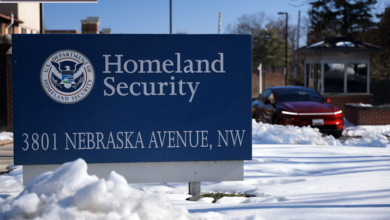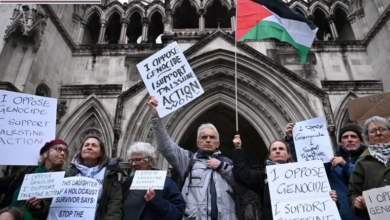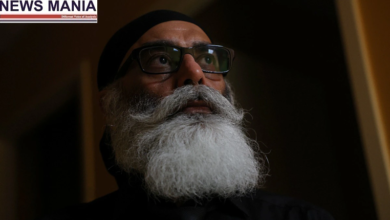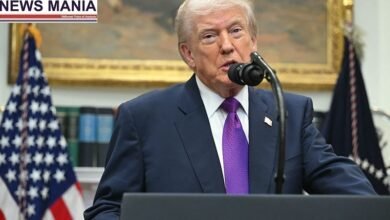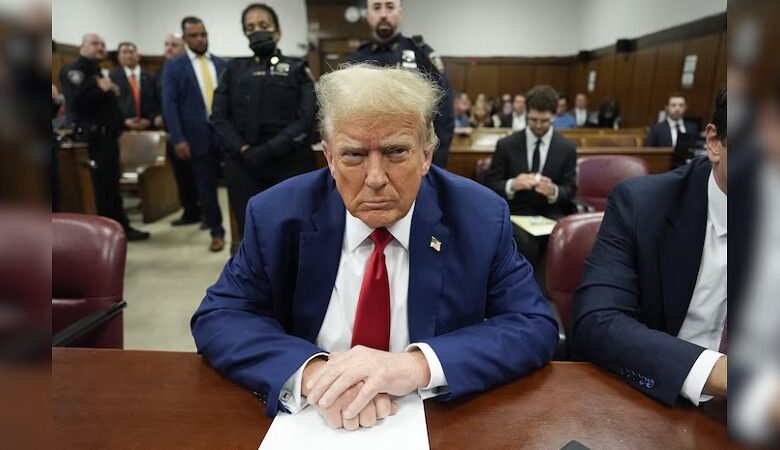
Former US President Donald Trump faces the prospect of jail after being held in contempt of court for the tenth time in his hush-money trial in New York. Justice Juan Merchan delivered a stern warning to Trump, cautioning that further violations could result in incarceration, marking the second ruling on a gag order breach in the trial. Trump faces charges related to falsifying business records to conceal payments to a porn actress, allegations he vehemently denies.
The trial, which has entered its third week, has witnessed escalating tensions between Trump and the judiciary. Despite previous fines totaling $9,000 for nine violations of the gag order, Trump’s continued disregard for the court’s directives has drawn the ire of Justice Merchan. Expressing concerns over the integrity of the judicial process, the judge emphasized the gravity of the violations, labeling them as a “direct attack on the rule of law.”
While the prosecution has refrained from seeking immediate incarceration for Trump, Justice Merchan warned that jail sanctions would be considered going forward. However, he acknowledged the disruptive nature of incarcerating a former president during ongoing proceedings. In response to the threat, Trump remained defiant, decrying the gag order as “disgraceful” and asserting his commitment to upholding constitutional principles.
The contempt ruling stemmed from Trump’s public statements regarding the jury selection process, which Justice Merchan deemed a breach of the gag order. By questioning the integrity of the proceedings and raising concerns about the safety of jurors, Trump’s actions undermined the legitimacy of the trial. In his written ruling, Justice Merchan reiterated the seriousness of the violations and put Trump on notice regarding potential future sanctions.
In addition to the threat of jail time, Trump was ordered to pay a $1,000 fine and remove the offending social media post promptly. While Trump’s defense argued against the gag order, asserting his right to free speech, Justice Merchan reaffirmed the limitations imposed on defendants in criminal trials. Despite Trump’s claims of unfair treatment and political bias, the court maintained that certain topics are off-limits for discussion.
The prospect of Trump facing incarceration raises unprecedented challenges, particularly concerning security arrangements. As a former president entitled to lifelong Secret Service protection, ensuring Trump’s safety in jail presents logistical complexities for law enforcement agencies. Experts suggest that housing Trump in solitary confinement would be necessary due to security concerns, although it raises ethical considerations.
Meanwhile, the trial proceedings have focused on scrutinizing documents crucial to the prosecution’s case. Each felony charge against Trump corresponds to financial transactions linked to reimbursing his former attorney Michael Cohen for hush-money payments. Prosecutors allege that Trump falsely recorded these payments as legal expenses to conceal his involvement, a claim vigorously contested by the defense.
Witness testimonies have provided insights into the financial transactions and Trump’s purported role in orchestrating them. While the defense attempts to distance Trump from the payments, the prosecution aims to establish his culpability through documentary evidence and witness testimonies.
Despite lacking bombshell moments, the trial’s proceedings shed light on the intricate financial transactions under scrutiny. As the legal battle unfolds, the stakes remain high for Trump, whose fate hinges on the courtroom deliberations and the judiciary’s verdict.



